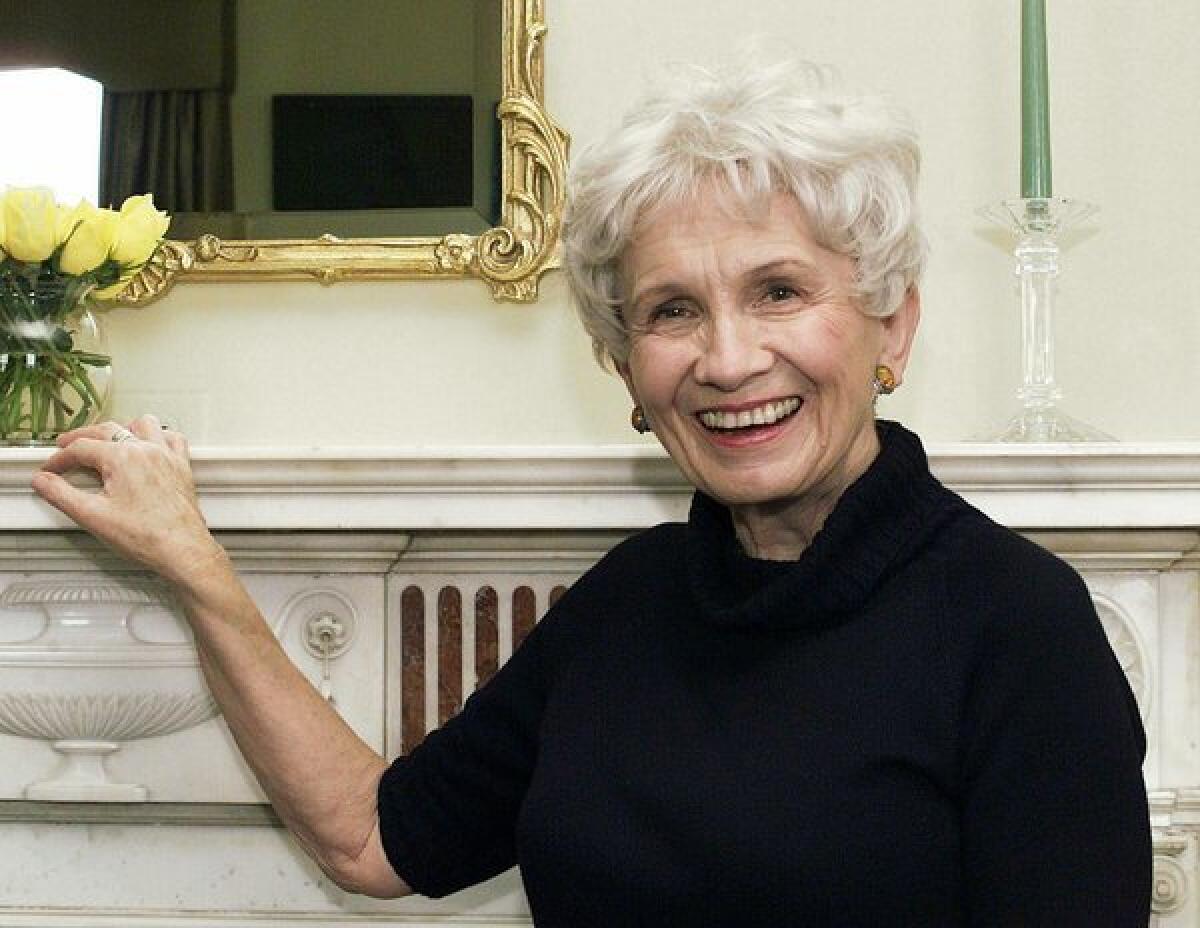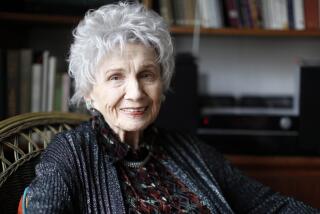They said no to Alice Munro: The Nobel winnerâs rejection letters

Alice Munro, who was awarded the 2013 Nobel prize for being a âmaster of the contemporary short story,â was originally rejected for choosing short fiction for her art.
The Canadian writer Alice Munro just wasnât new and exciting enough. Not in the eyes of the editors at Alfred A. Knopf who rejected her work in the 1960s and â70s.
âThereâs no question that the lady can write but itâs also clear she is primarily a short story writer,â wrote Knopf editor Judith Jones in 1971.
Earlier this month, Munro won the Nobel Prize in literature.
This week, the Harry Ransom Center, a library and archive at the University of Texas at Austin, showed Munroâs rejections letters to a reporter at the Daily Texan.
The Ransom Center holds a large number of rejection letters as part of the Alfred A. Knopf archive, including one for Munroâs first book of short stories and one for her short-story cycle âLives of Girls and Women,â a book thatâs often mistakenly referred to as a novel.
âI think [the collection] speaks to what difficulties she had in the genre in which she was working,â Jean Cannon, literary collections research associate at the Ransom Center, told the Daily Texan. âItâs remarkable to me that she would stick with it and not give in to the pressure to write a novel.â
Munro, 82, wrote most often about the lives of women and families in fictional Canadian towns that resembled the one in rural Ontario where she grew up. Senior lecturer Brian Doherty reviewed the letters and told the Daily Texan that it was clear Knopfâs editors enjoyed Munroâs work but didnât find it marketable.
â[Itâs] depressing when you consider so many writers change their approach to writing and their approach to literature in order to increase salability,â Doherty said.
Of course, Munro is by no means the first Nobel winner to receive rejections early in her career. Excerpts from rejection letters to three Nobel winners-- William Faulkner, Ernest Hemingway and Isaac Bashevis Singer -- were published last month by the online magazine Thought Catalog in an article headlined 14 Rejection Letters To Famous Artists.
There are also more rejections from Knopf, including one to Vladimir Nabokov and another to Jack Kerouac. In rejecting Kerouacâs âOn the Road,â a Knopf editor wrote: âThis is a badly misdirected talent and ... this huge sprawling and inconclusive novel would probably have small sales and sardonic indignant reviews from every side.â
âOn the Roadâ has sold more than 4 million copies in the U.S. since its publication in 1957.
ALSO:
Why donât iconic novels translate into film?
Attica Locke named winner of 2013 Ernest J. Gaines Award
Orson Scott Cardâs anti-gay views haunt âEnderâs Gameâ premiere
More to Read
Sign up for our Book Club newsletter
Get the latest news, events and more from the Los Angeles Times Book Club, and help us get L.A. reading and talking.
You may occasionally receive promotional content from the Los Angeles Times.










